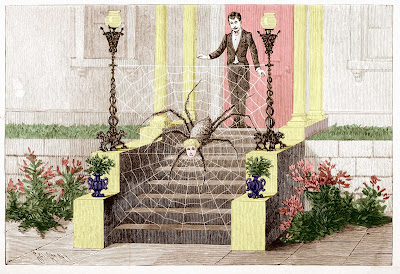Any seller using Ebay will know that their seller fees went up again this year. The monthly shop fees went up thus: Basic by 48%, Featured by 32% and Anchored by 23%. That's quite a jump for all of them. For those of who have continued to use Ebay, we just have to agree to it and carry on. However, Ebay appears to be even more money grabbing in a way we have not agreed to and some may not have noticed. Here is a screen grab (done today) of the latest fees. Note, in the bottom row, the auction style listing fee is £0.15 for all three tiers of Ebay Shop.
Now, in this screen grab below (also done today) note the fee Ebay charged me when I listed two auction style listings (each with a £0.99 starting price) after my monthly quota of free auction listings was used up. So to state the obvious, as an Ebay Shop owner, two listings at £0.15 each should cost only £0.30.
£0.36 for two listings instead £0.30. An extra £0.03 per auction listing. £0.03 may not sound a lot to be overcharged by, but consider how many thousands of Ebay Shop owners that are listing auction style listings each day and might be paying £0.03 extra per listing without knowing it?
Is Ebay being very naughty? If this is merely a software glitch, it's going to take some explaining to be convincing.
UPDATE: I have found the reason. Ebay is, quite simply, being vague as to when and where it is now charging VAT on something. They did announce some months back that they would be adding VAT on charges made to Ebayers registered as business sellers BUT they have not spelled that out clearly enough on their fee descriptions. They are still advertising £0.15 as a listing fee for auction listings but they should have a column stating £0.18 (includes VAT) for Ebayers registered as business sellers. Their present description allows a misinterpretation that £0.15 includes VAT. It does not. It is a bit like those shops that have a price on every item in them but once you take something to the counter they announce the price does not include VAT and they produce a calculator to hit you with the real price.
UPDATE: I have found the reason. Ebay is, quite simply, being vague as to when and where it is now charging VAT on something. They did announce some months back that they would be adding VAT on charges made to Ebayers registered as business sellers BUT they have not spelled that out clearly enough on their fee descriptions. They are still advertising £0.15 as a listing fee for auction listings but they should have a column stating £0.18 (includes VAT) for Ebayers registered as business sellers. Their present description allows a misinterpretation that £0.15 includes VAT. It does not. It is a bit like those shops that have a price on every item in them but once you take something to the counter they announce the price does not include VAT and they produce a calculator to hit you with the real price.







